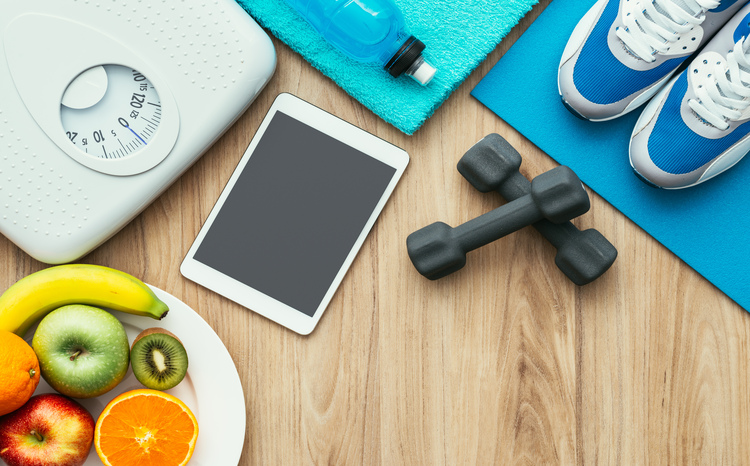Mobile health and apps news in brief

May’s mobile health and apps round up features an app that helps stroke patients get quicker access to the right care at the right place, and new research that suggests that the number of UK adults who are using health apps on a weekly basis is on the rise.
Mobile app claims reduce decision making for suspected stroke patients
A new mobile phone app has been developed in Greater Manchester to support pre-hospital clinicians in getting stroke patients the right care at the right time.
The app identifies the most suitable and nearest Hyper Acute Stroke Unit or A&E and prompts a pre-alert to the hospitals for selected patients.
This reduces a process that can take anything up to 10 minutes or more, down to 10 seconds.
The app has been designed by software developers D2digital and a consortium of organisations across the Greater Manchester region.
Founder of the app Chris Ashton, who is also a coordinator of the Greater Manchester Stroke Operational Delivery Network and a registered paramedic, said: “This app is a simple solution to a complex problem. Clinicians are often working in new and unfamiliar areas, whilst having to remember numerous care pathways; this app gives that bit of extra support in knowing patients are getting the right care at the right place”.
Research reveals UK adult’s health technology habits
New research has revealed just under a third of UK adults use health apps on a weekly basis.
The research, conducted by healthcare platform WeMa Life, involved 2,000 adults who were questioned about their health technology habits.
Around 28% of those who took part said they use health apps on a weekly basis with 45% believing that technologies are going to reduce the UK’s reliance on public healthcare, cutting down how often we need to see medical professionals.
Furthermore, 61% said health apps help them to incorporate healthier practices, exercise techniques or mental health tips into their daily life
Rohit Patni, CEO and co-founder of WeMa Life, said: “Not only does HealthTech improve people’s knowledge of their mental or physical wellbeing, but it’s also vital in connecting consumers with health and care businesses or medical professionals.
“In doing so, it’s clear that apps and online tools now have an important role to play in bridging gaps and filling cracks within the wider healthcare sector.”
Increasing use of contraceptive apps sparks fears over unwanted pregnancies
Experts are reportedly warning that the rise of the number of women using contraceptive apps could lead to an increase in unwanted pregnancies.
Sarah Hardman, the director of the Faculty of Sexual and Reproductive Healthcare’s clinical effectiveness unit in Edinburgh, expressed concern and said there is no “good indication yet of how successful the average woman in the street in the UK is going to be when using them”, The Guardian has reported.
She added: “I would express concern about people knowing what they need to know before they use it and not just thinking: ‘this is modern because it’s an app and it’s something new, so it’s better and more effective’. It’s not – it’s just very different.”
Inhealthcare joins forces with MSKassist for obesity app
Inhealthcare has joined forces with MSKassist, a new app which claims to help doctors and physiotherapists combat the growing problems associated with obesity and physical inactivity in the UK.
Developed by Sussex-based MSKnote, the app is aimed at those suffering from Musculoskeletal (MSK) conditions.
MSKassist helps educate patients about the importance of self-managing their long-term complaints, as well as helping doctors provide patients with the information that was discussed in their appointment, through a personalised print-out and dedicated mobile app.
The information, presented in text and video, helps patients to remember their personal treatment plans and follow them more effectively.
It is hoped that by joining forces with Inhealthcare, the app can link users to the NHS.
Cathal Malone, company director at MSKnote, said: “I know from my years of experience in treating MSK patients how debilitating these conditions can be.
“We believe MSKassist will result in fewer follow-up appointments and fewer referrals to musculoskeletal services.
Patients can now wait for appointments virtually via their mobile device
Technology supplier Qmatic has launched virtual mobile ticket service.
Patients can use their mobile device to select a service and join a virtual queue, giving them all the information they need about their appointment and ensuring that they are guided to the right place within the healthcare facility.
They can simply open a web app, or scan a QR code and receive all the details they need regarding their appointment.
This eliminates the need for patients to wait in line to see a receptionist and gives them information about where to go and which clinician to see, efficiently guiding patients to the right place and ensuring that they are informed about the status of their appointment.





